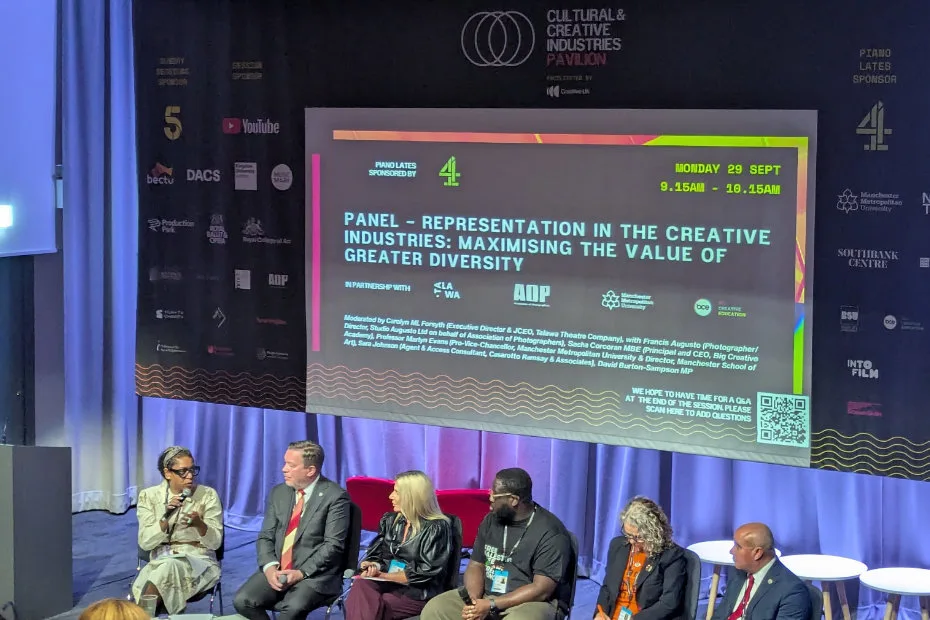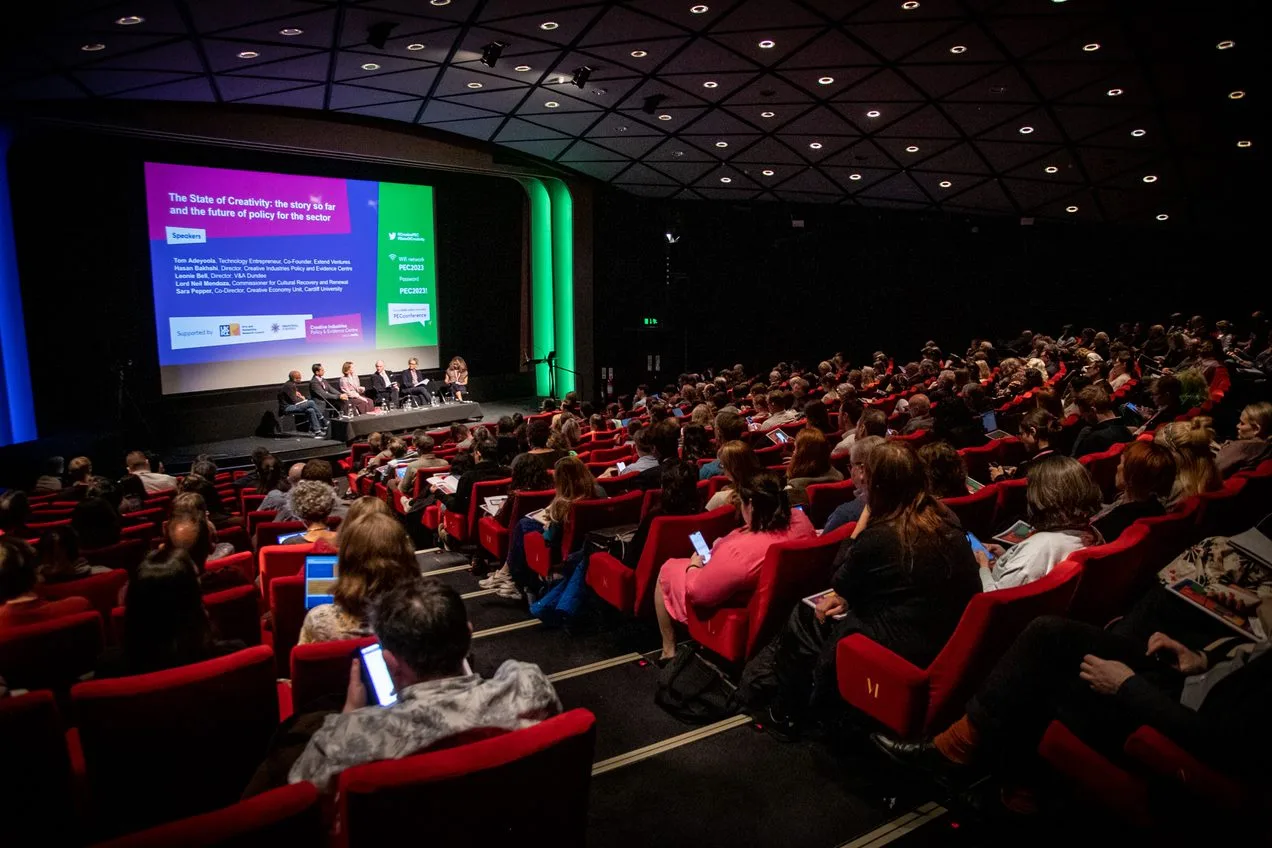The Creative Industries Policy and Evidence Centre (PEC) offers a unique opportunity to respond to a dramatic challenge to the industrial organisation of the creative industries: Are the creative industries becoming a subset of data intensive industries? All online behaviour is potentially observable. It is likely that whoever controls this data infrastructure will have a stake in the creative economy that is very different from the role of earlier cultural intermediaries.
These issues have emerged strongly from our research since 2012 into the changing conditions of creative production. In new work for the PEC, addressing research needs of the UK’s creative industries, researchers will work on intellectual property, business models, access to finance and content regulation, seeking to understand the emergence of global internet players whose market shares would traditionally send alarm bells ringing for regulators.
The ‘platform economy’ may be described as an online ‘arrangement whose algorithms serve to organize and structure economic and social activity’. It can include a variety of services ranging from advertising and social networking to content publishing and distribution. Platforms are key intermediaries between several sets of users and seek maximum benefit from their so-called ‘network centrality’. Platforms that link multiple social groups through mobile access and social media are not just distributors. They structure if and how ‘consumers’ might play a more active role (for example through comment, retweets, creating playlists and user-generated content). They capture behavioural data for the targeting of content. They are also financing creative production – most obviously so in the case of the audiovisual market.
If the control of data becomes more important than the control of content, this will raise fundamental research questions for the future of the creative industries which we need to understand but cannot yet fully anticipate. The design of the PEC means we will consult industry widely, but issues surrounding the ‘platform economy’ will direct our initial priorities. Policymakers charged with supporting and shaping the growth of the creative industries need to understand the implications for public policy.
We look to do at least three things this year:
1. Consolidate evidence: creating digital tools making evidence more useful, usable and used
As new challenges emerge for the creative industries, policymakers will be looking to make use of existing evidence at an increasing rate. We are therefore in consultation with the UK Intellectual Property Office about piloting a data tool that will offer access to the raw data of the Online Copyright Infringement (OCI) tracker surveys conducted since 2012. This will enable rigorous insights into changing online media behaviour that should be of wide interest to creative businesses. An interface whose design is led by users will permit important questions to be answered about infringement and business models, about trends in use of services, demographics and willingness to pay. We invite industry and policy makers to work with us in developing the Online Media Behavior pilot (OMeBa) in coming months.
We are also producing a comprehensive online Evidence portal with the ambition to become the global reference point in this field. We aim to catalogue empirical evidence and sources of data on copyright, with close user involvement, drawing on Wiki technology. Design and functionality will be inspired by CREATe’s CopyrightUser.org, led by creative director Bartolomeo Meletti. This has become the UK’s leading copyright guidance resource, with more than 120,000 unique visitors per year. We want to grow access to evidence significantly and widen the user base.
2. Develop a programme of research that address challenges arising from the emergence of platforms for the production, distribution and international exploitation of creative content
We have begun consulting with a wide range of stakeholders on policy priorities since the launch of the PEC. We are particularly keen to hear from industry and policy makers on priorities for research which addresses the challenges and opportunities for the creative industries arising from internet platforms, building on CREATe’s consultation activities in this area. We think we need to understand the interface between copyright law and algorithms (that may predict the content served up). We need to understand whether creators can be empowered, for example by mechanisms such as rights reversal (where publishing rights or copyright may return to the creator after a certain period or on non-exploitation) and how such measures would impact on publishers. We need to examine barriers to debt finance in the creative industries arising, for example, from the difficulties in valuing intangible assets, reflecting information asymmetries between investors and content businesses, and how public policies should address these. These projects are currently being shaped, and will lead to the appointment of two postdoctoral fellows in autumn 2019.
3. Research platform regulation from an agency perspective
The regulation of internet platforms has been moving up the international policy agenda, with calls for new regulatory powers and new regulators. Ranging across taxation, intellectual property, harm to young people, challenges to media business models and political interference in elections, the issues addressed continue to ramify.
Damian Collins, chair of the House of Commons Digital, Culture, Media and Sport Committee, said in his introduction to the Committee report Disinformation and ‘Fake News’:
“We need a radical shift in the balance of power between the platforms and the people. The age of inadequate self regulation must come to an end. The rights of the citizen need to be established in statute, by requiring the tech companies to adhere to a code of conduct written into law by Parliament, and overseen by an independent regulator.”
There is a deep tension between bringing platforms into the regulatory sphere, and delegating regulatory functions (such as policing and filtering) to platforms themselves. The first approach establishes rules that platforms cannot escape; the second approach may imply due process is being bypassed. Who, for example, oversees Facebook’s machine learning, artificial intelligence and computer vision technology and their 30,000 human content moderators?
This tension is in fact handled quite differently by different jurisdictions and by different regulatory agencies within each country. The world is in a phase of radical experimentation. We need research that understands the factors that are driving the different regulatory responses. We need to understand the premises that underpin different approaches to regulation. We need an evidence base to inform the design of these regulations so that they benefit the creative industries.
Countries may seek to regulate through Content Regulation (Ofcom), Data Regulation (Information Commissioner), Competition Authorities, Advertising Standards Authorities, intellectual property, electoral and counter-terrorism laws.
The UK government has set up a Digital Competition Expert Panel with an economic focus to assess evidence on concentration in digital markets, the accumulation of data by a small number of firms and the impact of large market players on innovation and investment. It is unclear, however, how a narrow economic approach sits, for example, with the Cairncross Review’s recommendations for the sustainability of the UK’s news industry, which span the economic and non-economic, and involves considering regulation at the same time as tax reliefs, subsidy and media literacy.
The UK’s challenges of platform regulation are, of course, both national and regional. Made more uncertain by Brexit, they are also European and global. The PEC will seek to establish a forum for a cross- and international dialogue between the regulatory agencies.
If you would like to get in touch with us please write to: Martin.Kretschmer@glasgow.ac.uk or Philip.Schlesinger@glasgow.ac.uk
Suggested reading
Policy reports:
Australian Competition and Consumer Commission, (2018) Digital platforms inquiry (intermediary report) available at:
https://www.accc.gov.au/focus-areas/inquiries/digital-platforms-inquiry/preliminary-report [Last accessed March 2019]
Department for Digital, Culture, Media & Sport, (2019) Cairncross Review: A sustainable future for journalism, I available at:
https://www.gov.uk/government/publications/the-cairncross-review-a-sustainable-future-for-journalism [Last accessed March 2019]
HM Treasury, (2019) Unlocking digital competition, Report of the Digital Competition Expert Panel, available at:
https://www.gov.uk/government/publications/unlocking-digital-competition-report-of-the-digital-competition-expert-panel [Last accessed March 2019]
House of Commons Digital, Culture, Media and Sport Committee (2019) Disinformation and ‘Fake News’ Report, available at:
[Last accessed March 2019]
Intellectual Property Office, Online copyright infringement tracker survey: 8th wave (Published 4 July 2018) https://www.gov.uk/government/publications/online-copyright-infringement-tracker-survey-8th-wave
Ofcom,(2018) Addressing harmful content online: A perspective from broadcasting and on-demand standards regulation, available at:
https://www.ofcom.org.uk/__data/assets/pdf_file/0022/120991/Addressing-harmful-online-content.pdf [Last accessed March 2019]
Gollatz, K., Riedl, M. and Pohlmann, J. (2019) Removals of online hate speech in numbers, [Blog] LSE Media Policy Project Blog, available at: https://blogs.lse.ac.uk/mediapolicyproject/2018/08/16/removals-of-online-hate-speech-in-numbers/ [Last accessed March 2019]
Academic publications:
Kenney, M. and Zysman J.(2016), The Rise of the Platform Economy, Issues in Science and Technology 32(3), available at: https://issues.org/the-rise-of-the-platform-economy/ [Accessed March 2019]
Moore, M. and Tambini, D. (eds.) (2018) Digital Dominance: The Power of Google, Amazon, Facebook and Apple, Oxford University Press
Pasquale, F. (2015) The Black Box Society The Secret Algorithms That Control Money and Information, Harvard University Press
Rochet, J. and Tirole, J. (2003) Platform Competition in Two-Sided Markets Journal of the European Economic Association 1(4), 990–1029, available at:
https://academic.oup.com/jeea/article/1/4/990/2280902 [Accessed March 2019]
Related Blogs
From Wales to the World: Why International Cultural Policy Needs a Future Generations Lens
Can international cultural policy be shaped by focusing on future generations?
10 facts about Creative Industries growth potential
Discover ten key findings from the report 'High-Growth Potential Firms in the UK's Creative Industri…
Why London is investing in Creative Enterprise Zones
London Mayor Sir Sadiq Khan announces £2.2 million in new funding for Creative Enterprise Zones.
Research resources on Creative Clusters
We’ve collated recent Creative PEC reports to help with the preparation of your Creative Cluster bid…
What UK Job Postings Reveal About the Changing Demand for Creativity Skills in the Age of Generative AI
The emergence of AI promises faster economic growth, but also raises concerns about labour market di…
Creative PEC’s digest of the 2025 Autumn Budget
Creative PEC's Policy Unit digests the Government’s 2025 Budget and its impact on the UK’s creative …
Why do freelancers fall through the gaps?
Why are freelancers in the Performing Arts consistently overlooked, unseen, and unheard?
Insights from the Labour Party Conference 2025
Creative PEC Policy Adviser Emily Hopkins attended the Labour Party Conference in September 2025.
Association of South-East Asian Nations’ long-term view of the creative economy
John Newbigin examines the ASEAN approach to sustainability and the creative economy.
Culture, community resilience and climate change: becoming custodians of our planet
Reflecting on the relationship between climate change, cultural expressions and island states.
Cultural Industries at the Crossroads of Tourism and Development in the Maldives
Eduardo Saravia explores the significant opportunities – and risks – of relying on tourism.












